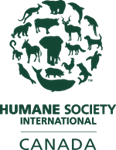‘Free Willy’ Bill heads to final hour of debate, set to pass Parliament
S-203, the ‘Ending the Captivity of Whales and Dolphins Act’, would end cruel confinement of cetaceans
OTTAWA, June 10, 2019 (GLOBE NEWSWIRE) -- Bill S-203, the Ending the Captivity of Whales and Dolphins Act, will move to the last hour of debate at 3rd Reading and is expected to reach a final vote in the House of Commons this morning. Bill S-203 prohibits the wild capture, captivity, and breeding of whales, dolphins, and porpoises, and restricts trade in these animals as well.
Representatives from Humane Society International/Canada and sponsors of the Bill will be available for comment at a press conference following the vote and will then be available for interviews and a photo opportunity outside on Parliament Hill.
What: 3rd and final reading, Bill S-203 – Ending the Captivity of Whales and Dolphins Act
When: Monday, June 10
- 11:00am – 11:45am, 3rd and final reading, House of Commons
- 12:30pm – 12:45pm: 135-B Press Conference Room, West Block, 111 Wellington
- 1:00pm – 2pm: photo op with signs in front of Centre Block
Who:
- Rebecca Aldworth, Executive Director, Humane Society International/Canada
- MP Elizabeth May, leader of the Green Party and House of Commons sponsor of Bill S-203
- Retired Liberal Senator Wilfred Moore, original Senate sponsor of Bill S-203
- NDP MP Gord Johns
- Bloc MP Monique Pauzé
- Representatives from HSI/Canada will be available for comment throughout the day.
Facts:
- Bill S-203 phases out the captivity of cetaceans (i.e. whales, dolphins and porpoises) in Canada, except for rescues, rehabilitation, licensed scientific research, or cetaceans’ best interests.
- HSI/Canada has campaigned to end the captivity of cetaceans for years. Globally, HSI has been at the forefront of a powerful movement to protect cetaceans and end their cruel captivity through education, outreach, and legislative efforts.
- Leading marine scientists agree that whales and dolphins suffer great psychological and physical harms in captivity, including isolation, chronic health problems, abnormal behaviour, high infant mortality and extreme boredom.
- Currently, only two facilities in the country house cetaceans – the Vancouver Aquarium, and Marineland in Niagara Falls. Now, these facilities could no longer be able to breed or import any new cetaceans into their facilities.
Media Contact: Christopher Paré, Director of Communications – o: 514-395-2914 x 206, c: 438-402-0643, email: cpare@hsi.org
Humane Society International/Canada is a leading force for animal protection, with active programs in companion animals, wildlife and habitat protection, marine mammal preservation, farm animal welfare and animals in research. HSI/Canada is proud to be a part of Humane Society International which, together with its partners, constitutes one of the world's largest animal protection organizations. Celebrating animals and confronting cruelty worldwide - on the Web at www.hsicanada.ca
Legal Disclaimer:
EIN Presswire provides this news content "as is" without warranty of any kind. We do not accept any responsibility or liability for the accuracy, content, images, videos, licenses, completeness, legality, or reliability of the information contained in this article. If you have any complaints or copyright issues related to this article, kindly contact the author above.


